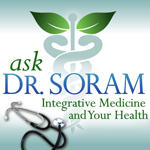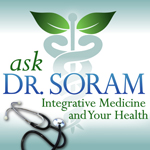 Vitamin D is so important during childhood and adolescence because of its important role in cell growth,as well as skeletal structure and development. In addition, as I have discussed in my book, adequacy of vitamin D helps prevent conditions such as coronary heart disease, osteoporosis, diabetes, infections, and autoimmune disease. My recent podcast #2, discusses some new findings in regards to these conditions.
Vitamin D is so important during childhood and adolescence because of its important role in cell growth,as well as skeletal structure and development. In addition, as I have discussed in my book, adequacy of vitamin D helps prevent conditions such as coronary heart disease, osteoporosis, diabetes, infections, and autoimmune disease. My recent podcast #2, discusses some new findings in regards to these conditions.
A new study was just published looking at vitamin D status of adolescents in Europe. This was part of the Healthy Lifestyle in Europe by Nutrition in Adolescence study (HELANA). This study is analogous to then the NHANES studies in the United States.
In this study, they looked at a sample of 1006 adolescence of which 470 were males. The age range of the adolescents was 12 to 15 years old. This was done in 10 cities in nine European countries.
They looked at the results of the vitamin D levels of the adolescence in the study. The level of sufficiency that they were using in this study was 30 ng/mL. We now know from science that we all need at least a blood level of 34 ng/mL in order to optimize absorption of calcium from our diet.
The shocking results of the study were that 80% of the adolescents had sub optimal level of vitamin D. Specifically 39% had levels between 20 and 30 ng/ml, which the authors called insufficient. Another 27% had levels between 11 and 20ng/ml which they called merely deficient. An additional 15% of the young people had levels less than 11 ng/ml and they were called severely deficient.
They also found the levels in the adolescents decreased the more the patient weighed.
With all of these types of data, including the data that shows 70% of American youths are deficient in vitamin D, it would be wonderful if our government could mandate everybody taking a pill containing at least 1000 IU and preferably 2000 IU of vitamin D every day.
Please check your own children and ask your friends and relatives to check their children especially teenagers to ensure that they have adequate levels of vitamin D. You can watch my video HERE for a short quick way to know what to do with you Vitamin D levels.




 Multiple sclerosis (MS) researchers have often suspected that there are multiple factors that cause MS. New research published in Neurology on April 19, 2011, reports that the combination of two circumstances, little exposure to sunlight and a history of having the Epstein-Barr virus (mononucleosis), increases your risk of developing MS.
Multiple sclerosis (MS) researchers have often suspected that there are multiple factors that cause MS. New research published in Neurology on April 19, 2011, reports that the combination of two circumstances, little exposure to sunlight and a history of having the Epstein-Barr virus (mononucleosis), increases your risk of developing MS..jpg) As you probably know, I feel strongly about educating others on the important role that vitamin D plays in supporting health. That is why I wrote The Vitamin D Revolution: How the Power of This Amazing Vitamin Can Change Your Life.
As you probably know, I feel strongly about educating others on the important role that vitamin D plays in supporting health. That is why I wrote The Vitamin D Revolution: How the Power of This Amazing Vitamin Can Change Your Life. .jpg) A new study shows that your vitamin D level may affect what dosage your doctor will prescribe for certain medications. This study, published in Drug Metabolism & Disposition, was the first of its kind to show that the body’s vitamin D level can affect the liver’s ability to break down and metabolize medication. This may give physicians and researchers insight into a puzzling question: Why do patients with otherwise similar medical histories respond differently to the same dosage of medicines?
A new study shows that your vitamin D level may affect what dosage your doctor will prescribe for certain medications. This study, published in Drug Metabolism & Disposition, was the first of its kind to show that the body’s vitamin D level can affect the liver’s ability to break down and metabolize medication. This may give physicians and researchers insight into a puzzling question: Why do patients with otherwise similar medical histories respond differently to the same dosage of medicines?  When you eat a diet high in sugar, it causes your insulin levels to rise. These foods include highly processed foods, including junk food, which convert to sugar and cause surges of insulin in the blood stream. High levels of insulin create inflammation throughout the body. Since acne is an inflammatory disease of the skin, anything that increases inflammation should be avoided.
When you eat a diet high in sugar, it causes your insulin levels to rise. These foods include highly processed foods, including junk food, which convert to sugar and cause surges of insulin in the blood stream. High levels of insulin create inflammation throughout the body. Since acne is an inflammatory disease of the skin, anything that increases inflammation should be avoided.



